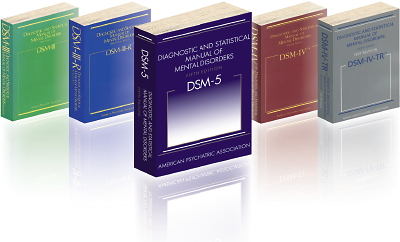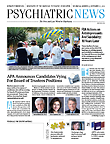Residents and fellows planning for licensure and certification examinations have expressed concern about how the various tests will use terminology from either DSM-IV or DSM-5. Below is a summary of how the major exams will accommodate the transition to the new diagnostic terminology: American Board of Psychiatry and Neurology (ABPN) exam. ABPN will adapt its examination specifications and content to conform to DSM-5 classifications and diagnostic criteria for all of its computer-delivered certification and maintenance of certification (MOC) examinations according to the following timeline:
Computer-delivered examinations administered in 2015 and 2016 will use classifications and diagnostic criteria that have not changed from DSM-IV-TR to DSM-5, as follows:
•
Diagnoses and diagnosis subtypes from DSM-IV-TR that became obsolete with the publication of DSM-5 will not be tested. Example: Substance-induced mood disorder is obsolete.
•
Diagnoses and diagnosis subtypes in DSM-5 that were not mentioned in DSM-IV-TR will not be tested. Example: Hoarding disorder is new to DSM-5.
•
Diagnoses that are exactly or substantially the same in both DSM editions will be tested.
Diagnoses that are substantially the same are defined as those that (1) have had a name change only, for instance phonological disorder in DSM-IV-TR is called speech sound disorder in DSM-5. Also, factitious disorder in DSM-IV-TR is called factitious disorder imposed on self in DSM-5; (2) previous diagnoses that have been expanded into more than one new diagnosis, such as hypochondriasis in DSM-IV-TR, which has been expanded into two diagnoses—somatic symptom disorder and illness anxiety disorder in DSM-5; (3) those that have been subsumed or combined into a new diagnosis. An example is alcohol abuse and alcohol dependence in DSM-IV, which are combined into the diagnosis of alcohol use disorder in DSM-5. For these diagnoses, both DSM-IV-TR and DSM-5 diagnoses will be provided on examinations.
Computer-delivered examinations administered in 2017 will use DSM-5 classifications and diagnostic criteria. Oral examinations will continue to use DSM-IV-TR classifications and diagnostic criteria.
Psychiatry Resident In-Training Examination (PRITE) and Psychiatrists In-Practice Examination (PIPE). A spokesperson for the American College of Psychiatrists, which administers the exams, says the PIPE exam will roughly follow the lead of ABPN. “The 2015-2016 exam will reference both DSM-IV and DSM-5,” she said. “We will not switch solely to DSM-5 until 2017.”
As for PRITE, the 2015 exams will switch to DSM-5.
The United States Medical Licensing Examination (USMLE). Because USMLE content pools are large, the transition from DSM-IV to DSM-5 criteria and terminology will need to be gradual and will likely take place over several years. According to the website of the National Board of Medical Examiners (NBME), which administers the exam, the following principles will guide this transition:
1. The highest priority has been given to content assessing diagnoses that do not appear in DSM-5. This content has already been removed from USMLE examinations.
2. USMLE will begin to transition content to include both DSM-IV and DSM-5 terminology. This process began this year. Start and end dates for this transition will vary by Step examination. ■

